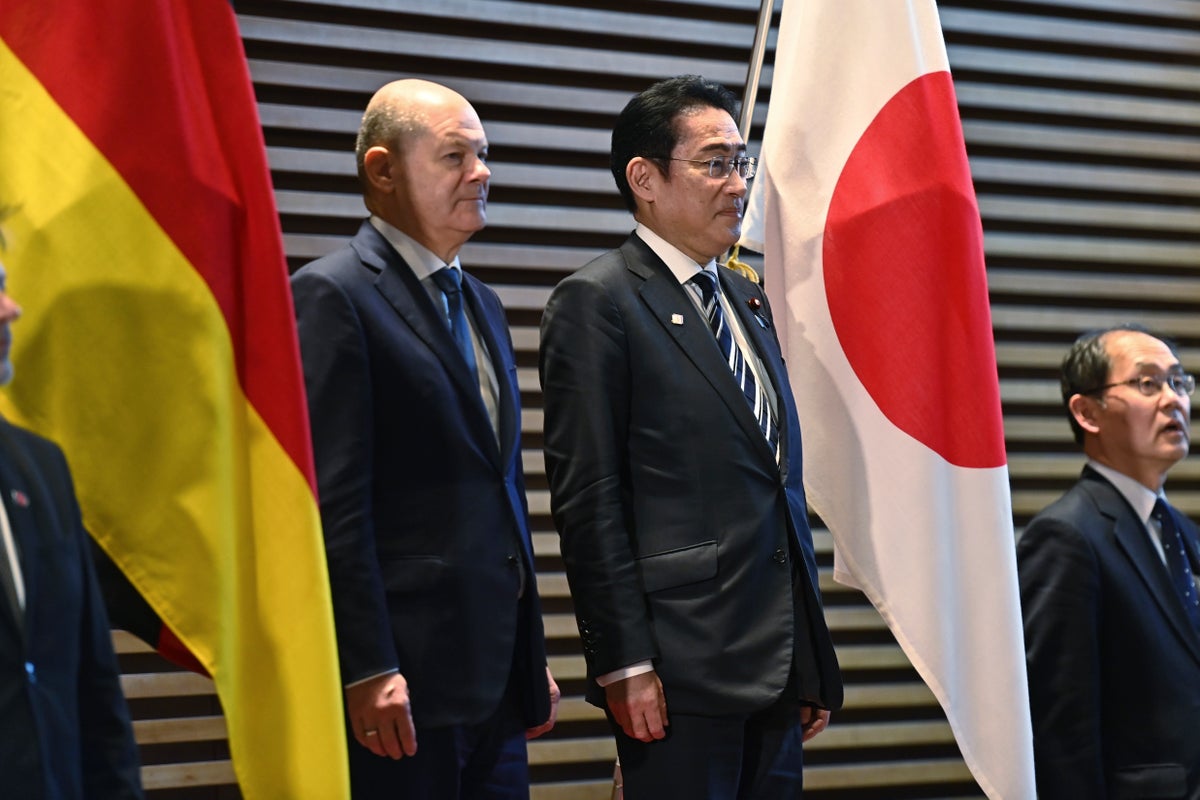
German Chancellor Olaf Scholz and Japanese Prime Minister Fumio Kishida on Saturday held the first round of government consultations in Tokyo as they seek to strengthen economic and defense ties in a global landscape dominated by China's growing influence and the war in Ukraine.
Scholz brought six of his ministers for talks with Japanese counterparts to deepen cooperation in the economy and national security in the Indo-Pacific region, as well as other global issues including China’s assertiveness in pressing its maritime territorial claims and its closer ties with Russia.
“I believe the government consultation will be a springboard to bring cooperation between Japan and Germany even closer,” Kishida said in his opening remarks at the meeting. Kishida said the focus of the talks is on economic security, the Indo-Pacific region, Russia’s war on Ukraine and other mutual concerns.
Germany has similar “government consultations” framework with several countries. Of the 17 members of Scholtz’s Cabinet, six of them, including economy, finance, foreign, interior, transport and defense ministers, are traveling with him.
The two defense ministers met separately and confirmed the German armed forces' continued engagement in the Indo-Pacific region and stronger military cooperation between the two countries.
Japanese Defense Minster Yasukazu Hamada and his German counterpart Boris Pistorius agreed to coordinate closely in future regional deployments of the German military and step up joint exercises. They also agreed to seek a legal framework to facilitate increased joint defense activities, as well as cooperation in defense equipment and technology, the Japanese Defense Ministry said in a statement.
Japan, noting growing threats from China and North Korea, has been expanding military cooperation beyond its main ally, the United States, and has developed partnerships with Australia, Britain, European and Southeast Asian nations. Kishida's government last year adopted a new national security strategy under which Japan is deploying long-range cruise missiles to strengthen its strike-back capability, a major break from the country's postwar self-defense-only principle.
Scholtz visited Japan last year before going to China, making a point of prioritizing Germany’s economic ties with Tokyo over Beijing. Scholz is pushing to diversify Germany’s trade partners, while speaking out against a complete decoupling from China.
Japan, along with the United States, is seeking ways to stand up to increasing Chinese economic influence in the region. Tokyo also wants to reinforce economic security with other democracies in areas such as supply chains and the protection of sensitive technologies, apparently as a counter to China.
But Japan, which is a top U.S. ally and a major trade partner with China, is in a delicate situation and must balance its position between the two superpowers.
For Germany, China was its biggest trading partner in 2021 for the sixth consecutive year, as business ties have flourished even though political relations have turned tense.







